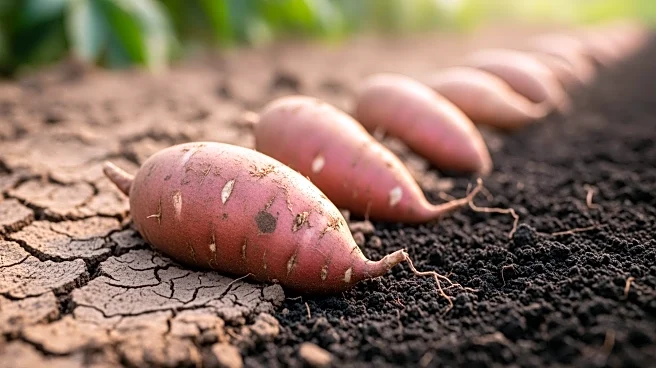What's Happening?
A study on cassava genotypes has revealed shared gene expression patterns across seasonal transitions, indicating common adaptive strategies. Conducted at the IITA Forest Reserve, the research involved
four cassava genotypes and monitored their growth parameters and environmental conditions. The study identified extensive transcriptional reprogramming during seasonal changes, providing insights into cassava's molecular responses. This dataset serves as a resource for future research on plant responses to environmental fluctuations and crop improvement strategies.
Why It's Important?
Understanding cassava's adaptive strategies is crucial for developing climate-resilient crop varieties. The study's findings can aid breeders and biotechnologists in enhancing cassava's yield and disease resistance. As climate change impacts agricultural productivity, such research is vital for ensuring food security and sustainable farming practices. The dataset offers valuable information for scientists and policymakers, potentially influencing agricultural policies and research priorities.
What's Next?
The study's dataset will likely be used in further research to explore cassava's genetic responses to environmental stressors. Researchers may focus on identifying candidate genes for crop improvement, aiming to develop varieties that withstand climate variability. Collaboration between scientists and agricultural stakeholders could lead to innovative solutions for enhancing crop resilience. The study's implications may drive policy discussions on sustainable agriculture and climate adaptation strategies.








